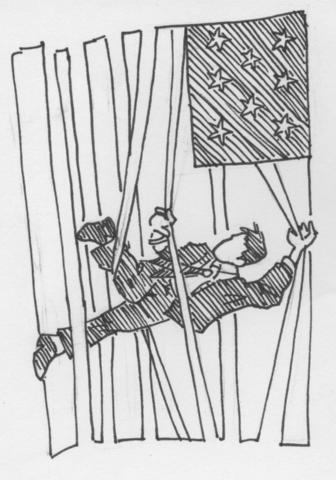“City Lights” is an old-fashioned, black-and-white romantic comedy written by, directed by, scored by and starring Charlie Chaplin. It is also required viewing for first-years as part of this year’s radically changed Encounters curriculum. Above and beyond class discussion, however, the movie stood out on its own as a refreshing, entertaining and ingenious take on cinema, as well as a needed reminder that movies need not rely on violence, sex, or flashy special effects to make an enjoyable, entertaining or thought-provoking movie.
The movie takes place in the early 1930s, following a broke and homeless tramp (Chaplin) who tries his hardest to make a living in the city. His life changes when he meets a blind flower girl. He falls in love with her and after purchasing a flower, she thinks he is a millionaire. The tramp learns that the girl’s rent is overdue, and wants to help her desperately, bumbling his way through a variety of odd jobs. In the meantime, he prevents a millionaire from committing suicide and in thanks, the millionaire takes Chaplin out for a night on the town: the beginning of a friendship that develops throughout the movie. The millionaire casually gives Chaplin one thousand dollars, which will pay the blind girl’s rent as well as an operation to fix her eyes. But upon giving her the money, Chaplin is accused of stealing it, and ends up in jail. In the end, they are poignantly reunited, but Chaplin leaves this ending open to interpretation.
“City Lights” is remarkable for several reasons. Because there is no dialogue to prop up plot development or comedy, everything else from the music to staging must be heavily relied upon. Chaplin, in directing this film, did a wonderful job of composing the music and matching it with scenes to enhance their comedic value as well as clearly define how the audience should be reacting to the actions or motives of the characters. Another critical part of the film was how the actors moved; Chaplin himself was perhaps the most expressive in his movements, being bumbling yet graceful at the same time, engendering sympathy and support for his character, while also drawing a few laughs in the process.
The film is also a stirring societal commentary, clearly addressing America’s uneasiness with wealth and poverty of the time, brought on by the Great Depression, then in its early stages. It accomplished this through juxtaposing the unhappiness and shallowness of the millionaire’s life with the tramp’s happiness and joie de vivre, despite his lack of material worth. “City Lights” is at once amusing, thought-provoking and compelling, reminding us of an earlier time yet still resonating today, a classic in the truest sense.







